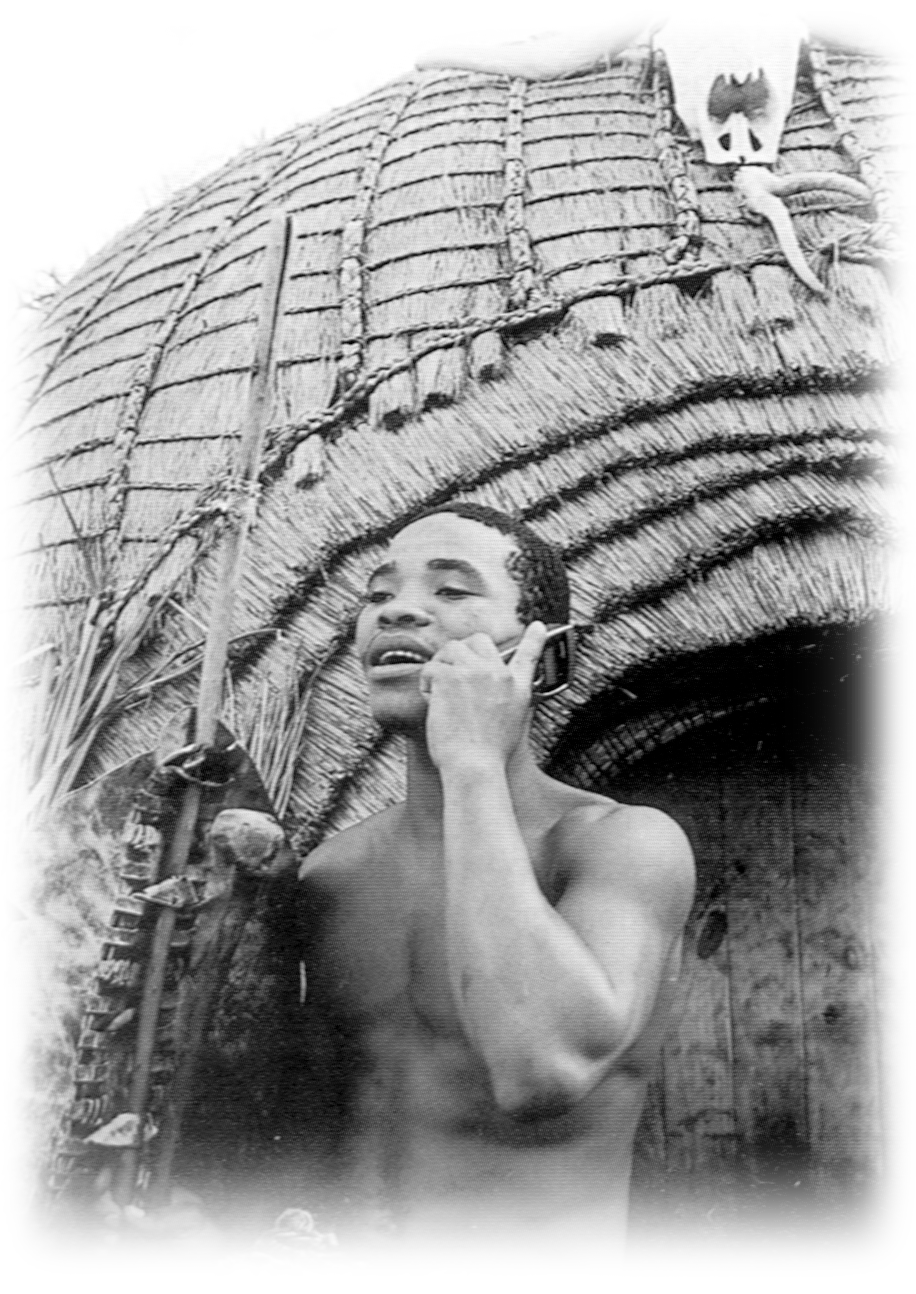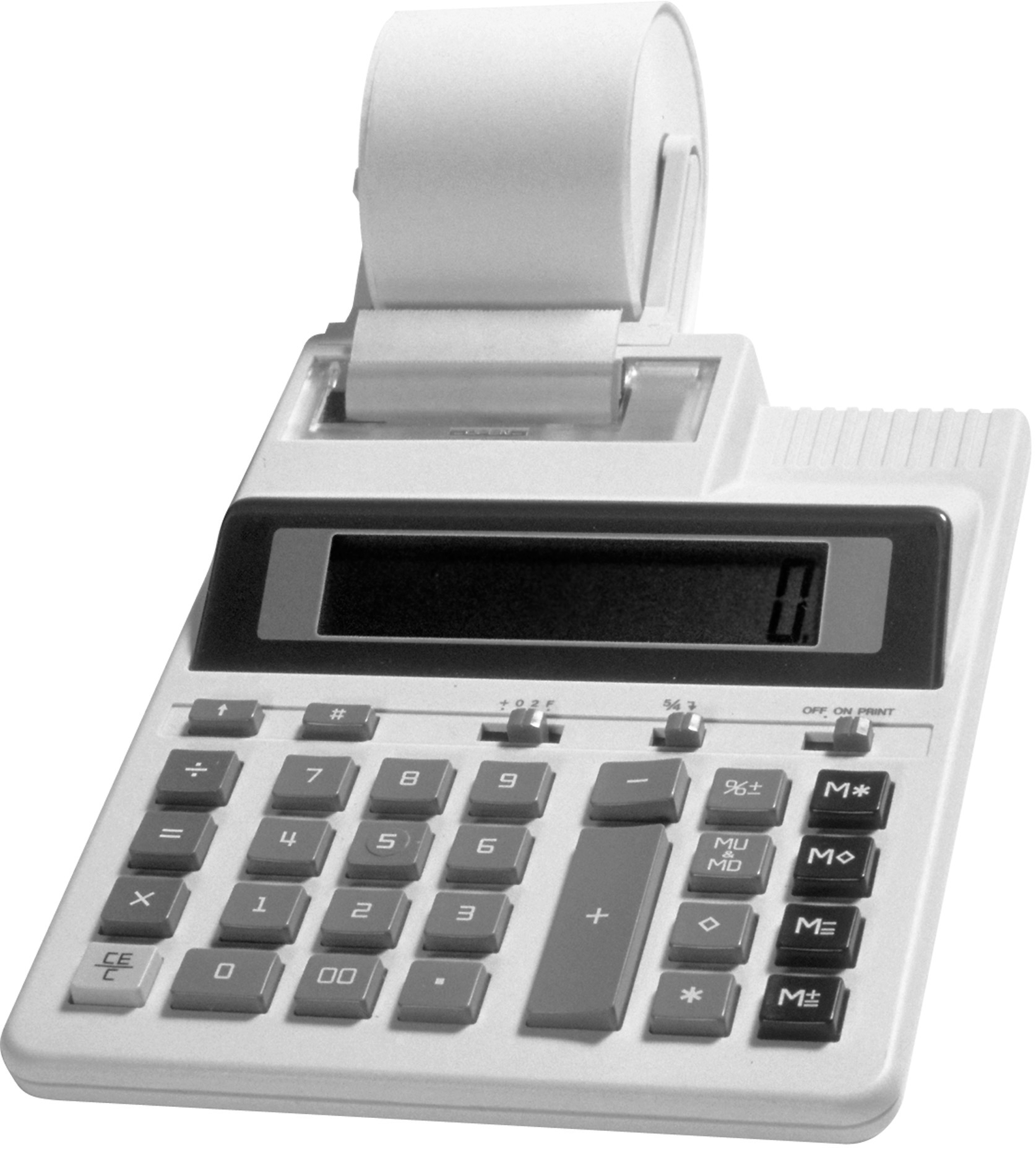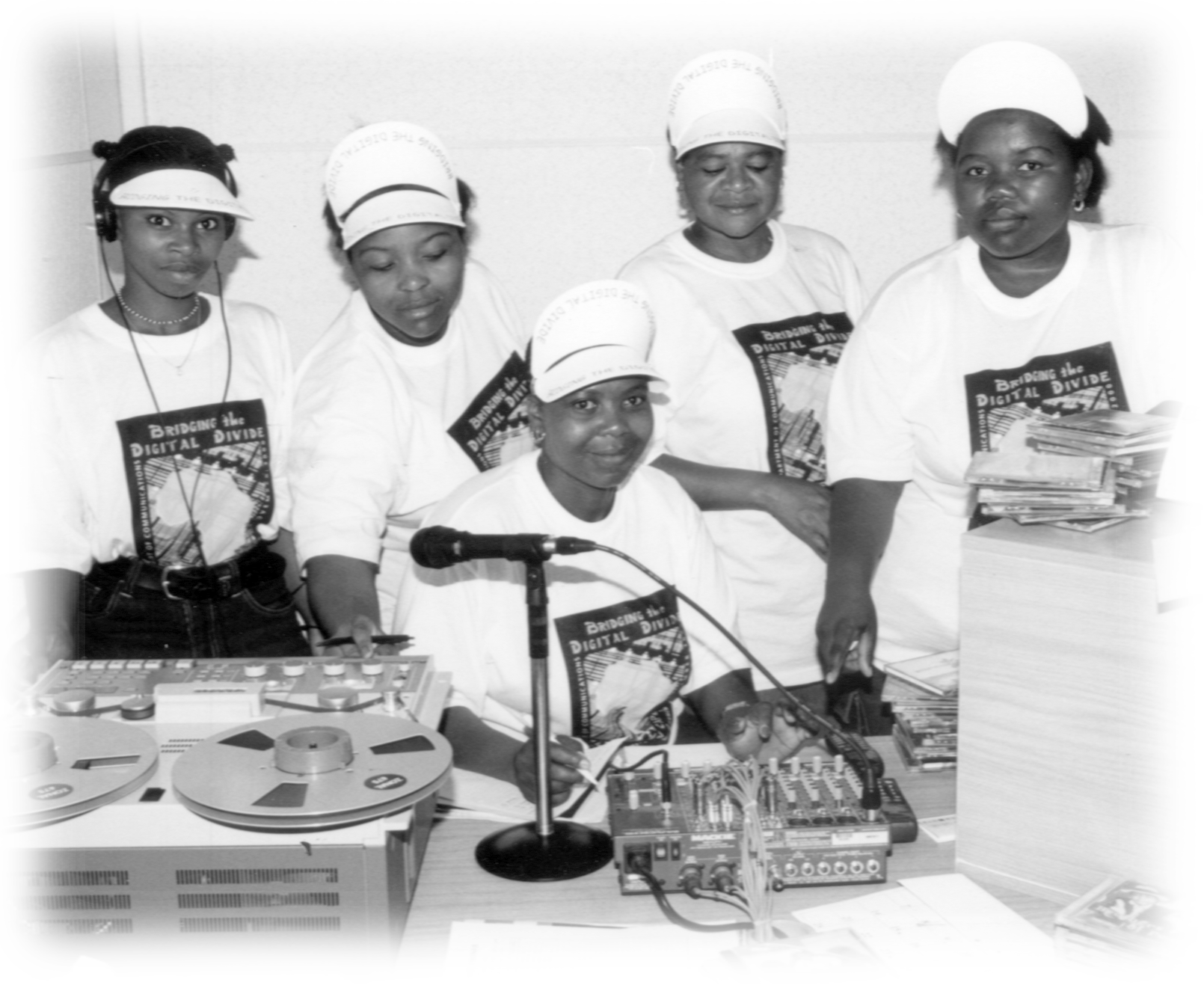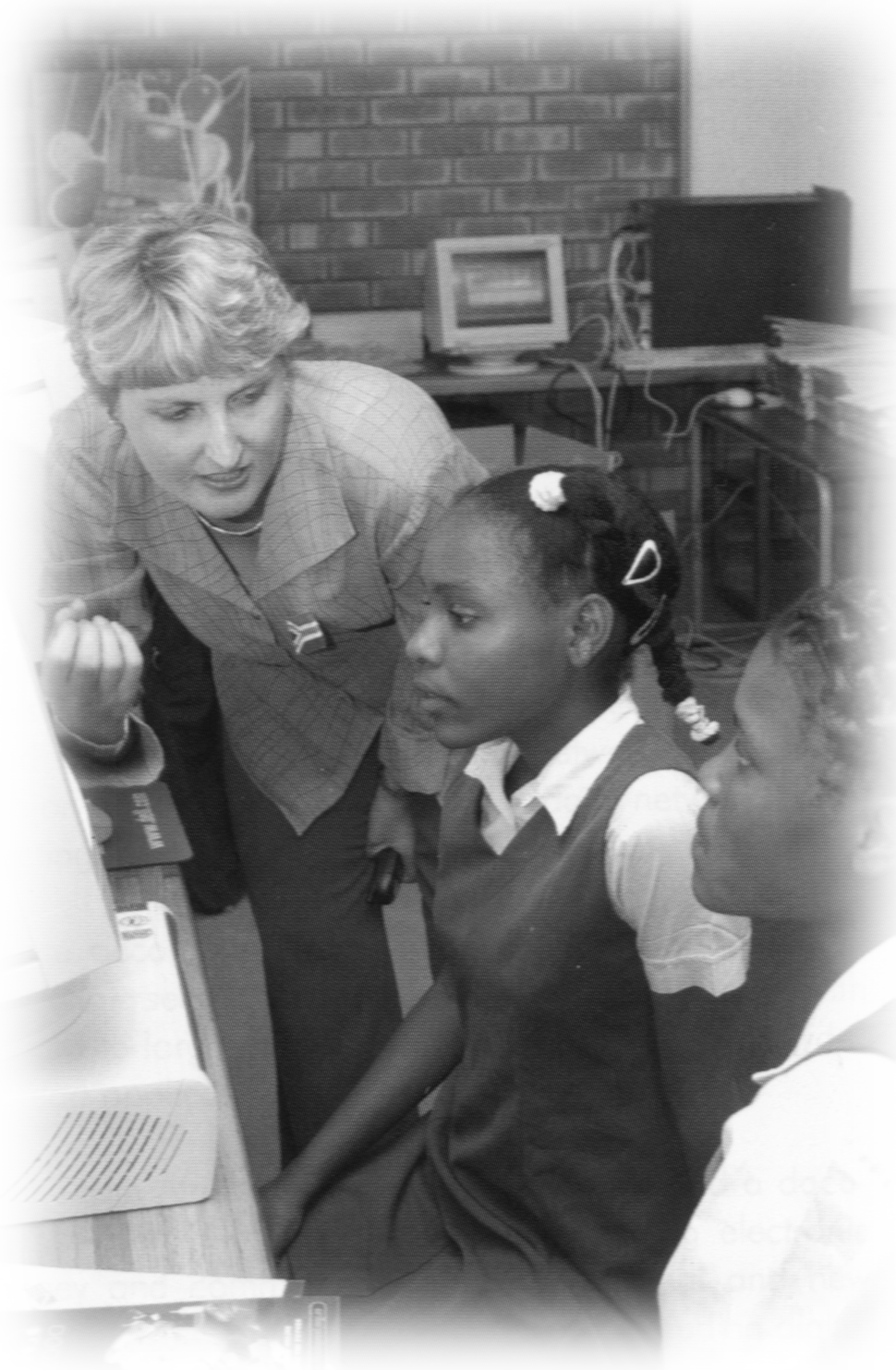DEPARTMENT OF COMMUNICATIONS
POLICY
DIRECTIONS ISSUED BY MINISTER OF COMMUNICATIONS


__________________________
Ivy Matsepe – Casaburri
MP


__________________________
Ivy Matsepe – Casaburri
MP
OBJECTIVE
This
Policy Direction contemplates the promotion of a managed liberalisation of
telecommunications matters in the public interest, pursuant to section 2 of the
Act.

1.
Application of this Policy Direction
1.1
This
Policy Direction shall be applicable to the telecommunications industry in the
following matters:
1.1.1
the provision of telecommunications
services;
1.1.2
the provision of universal access and
universal service;
1.1.3
the provision of telecommunications
services to public schools;
1.1.4
the advancement of economic empowerment
of persons from historically disadvantaged groups;
1.1.5
the
advancement of consumer protection;
1.1.6
the
provision for the administration of numbering, number portability and carrier
pre-selection;
1.1.7
the
provision of public emergency communications services; and
1.1.8
the
provision of directories and directory inquiry services.
1.1.9
the
provision of maritime services
1.1.10 the establishment
of a telecommunications museum
1.2
In
this Policy Direction, unless the context indicates otherwise, all terms shall
have the meanings assigned in terms of the Act and, where appropriate, the South
African Schools Act, 1996 (Act No.84 of 1996), the Interception and Monitoring
Prohibition Act, 1992 (Act No.127 of 1992), the National Heritage Resources Act,
1999 (Act No.25 of 1999), the Sentech Act, 1996 (Act No.63 of 1996).
1.3
This
Policy Direction shall become effective on the date of publication.
2.
Interpretation of the Policy Direction
2.1 For the purposes of this
Policy Direction, the following meanings shall apply:
2.1.1
“Broadband”
means a technology solution, wireless and/or cable or both that provides for the
transmission of integrated voice, data and video service in a single logical
channel between the network transmitter stations/lines and the subscriber;
2.1.2
“Directories”
means the compilation of customer information of designated licencees
which shall include, at a minimum, for each customer in the relevant
area (other than those customers who have specifically asked not to be
included): their names, addresses,
and telephone numbers; a list of national and international dialling codes; and
a listing of the numbers of national, provincial and local government
authorities, institutions and offices, and the public emergency number;
2.1.3
“Directory enquiry service”
means the provision of information contained in directories;
2.1.4
“Fixed-mobile service” means
a service that will be provided by the PSTN licencees by means
of a communication device in a static or mobile environment, using fixed or
mobile infrastructure or a combination, or any technology enabling such service
to be provided;
2.1.5
“major licence” means a telecommunications
service licence as contemplated in terms of section 34 (2)(a) of the
Act;
2.1.6
“Public
school” means any primary or secondary ordinary school or a public school for
learners with special education needs that is funded by the state in terms of
section 34 of the South African Schools Act, No 84 of 1996;
2.1.7
“Public
switched telecommunications networks or PSTN”
means the
telecommunications systems which are installed or otherwise provided, maintained
and operated by a licencee for the purpose of providing the public switched
telecommunications services and
fixed – mobile services as defined;
2.1.8
“Second National Operator (SNO)” means the holder of the second public
switched telecommunications services (PSTS) licence;
2.1.9
“Third
National Operator (TNO)”means the holder of the third public switched
telecommunications services (PSTS) licence;



1.
Second National Operator (“SNO”) and Third National Operator
(“TNO”)
1.1 An Invitation to Apply (“the
ITA”) for the SNO and TNO for a PSTS licence shall be
issued in 2001 by the Minister.
1.2 The SNO and TNO shall be permitted to use
Telkom’s telecommunications facilities until 7 May 2004, in accordance with an
agreement between the parties, to be concluded within 60 days of the issuing of the PSTS
licences. Provided that where the
parties fail to agree, ICASA shall, within 30 days, determine such terms and
conditions.
1.3 The SNO and TNO shall develop their own facilities and
infrastructures by 7 May 2004. Defined targets of infrastructure
roll-outs, universal service
obligations, universal access targets and time frames and, penalties
associated with failure to achieve the infrastructure roll-out shall be
specified in the ITA and in the
licence.
1.4 The SNO shall include ESI~TEL
(a division of Eskom Enterprises (Pty) Ltd which is a subsidiary of Eskom) and
the TNO shall include Transtel
(a division of Transnet), to maximise use of their respective existing
telecommunications infrastructure, facilities and resources.
1.5 Pursuant to section 2(l) of
the Act, the licencees of the SNO, the
TNO and any new major licencee shall include a shareholding of up to
thirty percent (30%) for economic empowerment of persons from historically
disadvantaged groups.
1.6 Foreign persons or entities
shall not, whether directly or indirectly, have a financial voting interest
and/or control in any new and existing major telecommunications licence
exceeding forty-nine percent (49%)
2
Telkom SA Limited
Telkom’s
current licence shall be amended to allow for the provision of PSTS in the form
of fixed-mobile services.
3.
Sentech (Pty) Ltd
3.1 The Act shall be amended to
license Sentech (Pty) Ltd. to provide international telecommunication services
direct to customers as determined by the Minister from 7 May 2002. Accordingly, the Sentech Act, 1996
(No.63 of 1996) shall be amended.
3.2 Sentech shall also provide
multi-media services.
4.
Additional licences(s)
4.1The Minister shall direct ICASA to
conduct a market assessment to be completed
by 31 December 2004 into the economic feasibility of the provision of more than
three PSTS licences and shall make
known its findings by notice in the Gazette.
4.2 The Minister shall issue an
ITA for at least one or more services-based licencee(s) to commence with the
provision of services in the last quarter of 2004.
5.
Under-serviced areas
5.1 Small, micro and medium
enterprises (SMMEs) shall be permitted to provide telecommunications services
including Voice over Internet Protocol (VoIP) for the specific purpose of
advancing universal access in geographical areas with a tele-density of up to
five percent (5%) from 7 May
2002.
5.2 SMMEs shall be permitted to
provide such services using their own or leased infrastructure.
5.3 A standard interconnection
regime applicable to all SMMEs shall be developed by ICASA for implementation as
from 7 May 2002.
6
Value Added Network Services (VANS)
6.1 The
prohibition to carry VoIP and voice in terms of section 40(3) of the Act, is
subject to the following:
(a)
the
exception as specified in clause 5 above;
(b)
Telkom’s
existing privilege under the PSTS licence; and
(c)
the
SNO’s and TNO’s privileges, as
contemplated in this Policy Direction.
6.2 VANS
operators shall have the privilege to provide end-to-end electronic commerce
services.
6.3
VANS
shall have the right to operate Virtual Private Networks to provide
telecommunications services except voice.
6.4 The
Minister shall after a period of two years conduct a policy review in order to
determine the feasibility of extending VoIP to other operators in the
telecommunications industry.
7.
Assignment of 1800 MHz Radio Frequency Spectrum
7.1 Within six months of
publication of this policy direction ICASA shall:
7.1.1
assign
the 1800MHz radio frequency spectrum to Cell-C, MTN, the SNO, the TNO, Telkom and Vodacom; and
7.1.2
make
regulations for new conditions of access and a new interconnection regime.
7.2 Access fees in respect of 1800 MHz shall
be determined by the Minister.
7.3 In computing the access fees
for 1800MHz radio frequencies the Minister shall have regard to, amongst others,
the following considerations:
(a)
MHz
pair per population per licence year;
(b)
provision
of paired/unpaired spectrum; and
(c)
technical
and administrative cost of spectrum management.
7.4 Sale, alienation or
disposition of assigned spectrum by any operator(s) and/or persons shall be
prohibited.
8.
Third Generation (3G)
8.1 ICASA shall on application and
payment of the fee determined by the Minister, issue the third generation
service licences to Cell-C, MTN, the SNO, the TNO, Telkom and Vodacom.
8.2 In computing the licence fee
for the 3G licence the Minister shall have regard to, amongst others, the
following considerations:
(a) MHz pair per population per licence year;
(b) provision of paired/unpaired spectrum; and
(c) technical and administrative cost of spectrum
management
8.3 ICASA shall make regulations
to provide for conditions of the licence and interconnection guidelines.
9
Broadband Services Licence
9.1 An Invitation to Apply (“the
ITA”) for the broadband services licences shall be issued in 2001 by the
Minister.
9.2 9.2 In the ITA the Minister
shall specify the geographical areas within which broadband services shall be
provided within the Republic.
UNIVERSAL ACCESS AND UNIVERSAL SERVICE:
BRIDGING THE DIGITAL DIVIDE
1.Universal access and universal service
objectives
1.1 Pursuant to the objects
as set out in section 2 (a), (c) and (h) of the Act, the targets for universal
access shall include accelerated access for differently abled persons to
services such as text and speech relay services, emergency speed dialling and
specialised operator assistance.
2.
Restructuring of the Universal Service Agency (USA)
2.1 The USA shall encourage,
facilitate and offer guidance in the evaluation, monitoring and implementation
of universal access and service schemes.
Institutional capacity to support effective evaluation and monitoring of
attainment of universal access and service schemes shall be a priority.
2.2 The Minister shall appoint a
board comprising seven persons, one of whom shall be a chairperson, to oversee
the schemes.
2.3 The Board shall report to the
Minister from time to time and/or as required by the Minister.
3.
Contribution to the Universal Service Fund (Fund)
3.1 All telecommunications
licencees, including Value Added Network Service licencees, shall from April
2003 contribute to the Fund a percentage of their turnover as prescribed by the
Independent Communications Authority of South Africa (ICASA). Provided that the prescribed percentage
shall not exceed 0.5%.
3.2 The
PTN’s and under-serviced area licencees shall be exempt from the provisions of
this section.
3.3 The extent of the
contributions shall be reviewed by the Minister from time to time.
EDUCATION
RATE (E - RATE) AND EDUCATION NETWORK (EDU – NET)

1.
E-rate
1.1 Public schools shall be entitled to a
fifty percent (50%) discount on all calls to an internet service provider and
any connection or similar fees or charges levied by an internet service provider
for accessing the internet and/or transmitting and receiving any signals via the
internet.
2
Edu-Net
2.1 The
Minister, in consultation with the Minister of Education, shall establish an
entity to operate an educational network (EDU-NET).
2.2 Edu-Net
shall be deemed to be the holder of the PTN licence, as defined in the Act, to
link all public schools as well as other educational and training institutions
determined by the Minister of Education.


1.
Economic Empowerment of persons from historically disadvantaged
groups
Pursuant
to the objects set out in section 2(l) and (q) of the Act it shall be a
condition of all new major telecommunications licences issued, that an aggregate
amounting up to thirty percent (30%) of the shareholding of an applicant company
and/or entity shall be set aside for the above mentioned groups. In this regard ICASA shall; -
1.1 ensure
incorporation of this condition in all new major telecommunications licences;
1.2 when considering any applications for
other telecommunications licences, it shall give due regard to applications from
persons from historically disadvantaged groups including women; and
1.3 will be required to develop
the necessary criteria that will give priority to persons from historically
disadvantaged groups including
women.
2.1
ICASA shall:
2.1.1
make
regulations for all operators, service providers, equipment suppliers and
vendors regarding their contributions to the economic empowerment of persons
from historically disadvantaged groups including women;
2.1.2
formulate licence conditions for all
operators and service providers regarding their respective contribution towards
the economic empowerment of persons from historically disadvantaged groups
including women;
2.1.3
ensure
that such regulations and licence conditions will provide that no reduction in
the level of the shareholding of persons from historically disadvantaged groups
including women in all major telecommunications licences shall be permitted
without prior consent of the Minister; and
2.1.4
from time to time report or at the
instance of the Minister report on
the overall status of the economic empowerment of persons from historically
disadvantaged groups including women in the telecommunications industry.
1
Furtherance
and Ensuring Consumer Protection
Pursuant
to the objects set out in section 2(f) and (m) of the Act, ICASA shall:
1.1 make
regulations to promote the development and the protection of the interests of
telecommunications users and consumers;
1.2
from
time to time report or at the instance of the Minister report on the overall
status of consumer protection in the telecommunications industry.

1.
Numbering
1.1 Number portability shall be
introduced from April 2003;
1.2 ICASA shall:
(a) allocate numbers,
maintain, manage and update the central
database system on an impartial and non-discriminatory basis, by no later
than May 2002;
(b) on
a monthly basis require all operators
to submit data on new numbers allocated, including numbers of pre-paid
subscribers to be included in the central database;
(c) develop by May
2002 a cost allocation model
regulation, for the apportionment of costs for the maintenance of the database
and the routing system;
(d) develop by May 2002 a cost allocation model
regulation, for the apportionment of costs for, number allocation, number
portability and carrier
pre-selection;
(e) prescribe a fee on all operators for the costs
and maintenance contemplated under paragraph (c) above.
1.3
Mechanisms,
including carrier pre-select, shall be introduced to ensure effective competition among
service providers from 7 May 2003.

1.
112 Emergency Centre(s)
Public
Emergency Communications Centre(s) (PECCs) designated as 112 Emergency Centre(s)
shall be established to promote the health, safety and security of all persons
and to provide efficient support and co-ordination of public emergency
communications.
2.
Public Emergency number
2.1
112
shall be the exclusive
national public emergency number;
2.2
the
112 Emergency Centre(s) shall have voice, data and global positioning systems
(GPS) capability; and
2.3
calls
to the 112 Emergency Centre(s) shall be free and override any other calls.
2.
Standards and operating procedures
The
112 Emergency Centre(s) shall develop and apply common technical standards and
standard operating procedures which shall be published by notice in the Gazette
with the approval of the Minister.
3.
Public safety radio communications service (PSRCS)
3.1 There shall be a common and
interoperable digital public safety radio communications service.
3.2 Any of the existing public and
future radio communications infrastructure in the Republic shall be utilised
only for a public safety radio service.

1.
Subscriber privacy
1.1 Specific procedures must be
implemented by licensed operators to prohibit unauthorised disclosure and use of
subscriber information.
1.2 Subscribers shall have the
right to elect not to have their personal details/particulars published in a
directory or made available from directory enquiries.
1.3 No subscriber information may
be used for any purpose other than the purposes listed below:
1.3.1
providing
directory or directory enquiry information;
1.3.2
billing
for any service or equipment ordered by the customer;
1.3.3
fraud
prevention;
1.3.4
facilitating
roaming and interoperability between operators;
1.3.5
providing
assistance to law enforcement agencies subject to the Interception and
Monitoring Prohibition Act of No
127 of 1992 and the Promotion of Access to Information Act No. 2 of 2000;
and
1.3.6
providing
assistance to a public emergency communications centre(s).
2.
Directories and directory information
2.1 There shall be a single
consolidated database for all telecommunications directory information and it
shall be made accessible, free of charge, to each subscriber to a telephone line
service within the Republic of South Africa.
2.2 A national directory
information database shall be established by May 2002 and maintained by an
entity designated by the Independent Communications Authority of South Africa
(ICASA) for that purpose.
2.3 All operators shall submit to
the database existing and future telephone numbers, within a period as
prescribed by ICASA.
2.4 The allocation of pre-paid
telephone numbers to any person shall be made upon receipt of identification and
contact particulars of the applicant, which shall be recorded and submitted to
the database.
2.5 All operators shall ensure
that all pre-paid numbers allocated prior to the date of publication of this
Policy Direction shall be verified for confirmation of identity and contact
particulars of the subscribers for submission to the database. This verification shall be completed by
no later than January 2003. Any
numbers not verified by this date shall be re-allocated.
3
Directory enquiry services
3.1 Directory
enquiry services must be available throughout the Republic of South Africa
including from payphones and must be provided free of charge.
3.2 Any network
operators licensed to provide directory enquiry services may conclude a contract
with any person in terms of which such person will provide such services,
provided that such person is subject to the same conditions for providing such
services as those provided for under the licence of the network operator.
MARITIME SERVICES
1
Maritime
1.1 The Minister of Communications
in consultation with the Minister of Transport shall establish an entity to
construct and operate a private telecommunications network to fulfil South
Africa’s obligations in terms of the International Convention for the Safety of
Life at Sea (SOLAS) 1974/78, Annexure 12 to the Convention on International
Civil Aviation, to be referred to as Maritime and Aeronautical Radio Services
(MARS).
1.2 MARS shall be deemed to be a
holder of a PTN licence as defined in the Act.

MUSEUM
FOR COMMUNICATIONS IN SOUTH AFRICA
1
Museum
1.1 A Museum depicting the evolution and the
history of the Communications sector shall be established in the Republic in
terms of the National Heritage Resources Act, 1999 (No. 25 of 1999) in
consultation with the Minister of Arts, Culture, Science and Technology. SCHEDULE


|
No
and year of the Policy Direction |
Title |
Extent
of amendment or withdrawal |
|
Policy
Direction No 3 issued under Notice 775 of 1997 |
Universal
Service Fund |
Withdrawn
with effect from April 2003 |
|
Regulation
under Government Notice R 730 of 1999 |
Universal
Service Fund |
Amendment
of Regulations issued under Government Notice R 730 of 1999 to give effect
to this Policy Direction . |